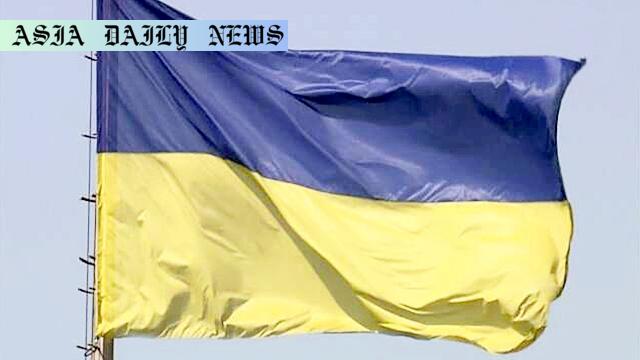Airfields: Ukraine detains two individuals for collecting data on military airfields related to F-16 fighter jet activities.

Introduction to the Arrest Incident
Ukraine’s Security Service has made critical progress in its counter-intelligence efforts by detaining two suspects accused of espionage activities. These individuals, aged 21 and 22, were apprehended in Kremenchuk, located in the Poltava region, for allegedly gathering sensitive information about military airfields where advanced F-16 fighter jets are stationed. Their actions have implications not only for Ukraine’s defense strategy but also for international security concerns.
Background: The Need for F-16s
In recent years, Ukraine has sought the support of Western nations to strengthen its military capabilities. Following a series of negotiations, Kyiv announced the arrival of the first batch of F-16 fighter jets in August of the previous year. These state-of-the-art aircrafts have since played a crucial role in Ukraine’s defense against external threats, highlighting the strategic significance of securing their operational infrastructure.
Details of the Espionage Case
The detained individuals were reportedly recruited by a Russian Federal Security Service (FSB) officer. This recruitment underscores ongoing tensions in the region, as intelligence tactics play a growing role in the conflict. The suspects were caught photographing an F-16 takeoff and were tasked with mapping critical aviation infrastructure, including precise airfield locations.
The Security Threat to Military Airfields
Aviation infrastructure remains a high-value target in modern warfare. These airfield locations, if compromised, could potentially be subjected to targeted missile and drone strikes by adversarial forces. The quick action by Ukraine’s Security Service highlights their vigilance in protecting these assets, ensuring that enemy plans are thwarted before they can cause any damage.
Ukraine’s Counter-Espionage Efforts
This operation sheds light on Ukraine’s proactive approach to counter-espionage initiatives. By detaining these individuals, Ukraine not only safeguarded its critical defense resources but also sent a strong message regarding the measures it is willing to take to protect national security. This development also underscores the importance of intelligence agencies being on high alert during times of heightened tensions.
Significance for Global Security
As tensions between Russia and Ukraine continue to escalate, this case serves as a reminder of the broader implications such conflicts have on international security. The involvement of FSB agents highlights how espionage transcends borders, with methods becoming increasingly sophisticated. Global stakeholders must remain vigilant, as geopolitical struggles in Europe have far-reaching consequences.
Future Challenges in Protecting Strategic Assets
Although Ukraine successfully thwarted this espionage attempt, challenges lie ahead. Advanced technologies and innovative reconnaissance techniques mean security agencies worldwide must adopt newer methods to combat threats. Collaboration between nations sympathetic to Ukraine’s plight could facilitate strengthened surveillance systems.
Conclusion
The detention of these suspects represents a small, yet significant victory in Ukraine’s ongoing battle to protect its sovereignty. With the stakes continuing to rise, it is crucial for defense systems to remain adaptive and alert, as the global ramifications from incidents like these are profound and enduring.
Commentary
The Importance of Counter-Espionage Efforts
Ukraine’s decision to take swift action against alleged espionage activities is commendable. In an age where military advancements and strategic planning are pivotal, protecting key assets such as F-16 fighter jets is not just a national priority for Ukraine but also a matter of global concern. This case highlights the necessity of proactive intelligence operations to thwart adversarial intentions.
Geopolitical Implications
This incident reflects the expanding reach of espionage in modern warfare, particularly in the context of the ongoing Russia-Ukraine conflict. It is a stark reminder that while technology has advanced military capabilities, it has also opened new avenues for exploitation and covert damage by opposing forces. Addressing these challenges requires stronger international collaboration and emphasis on intelligence sharing.
Looking Ahead
As geopolitical tensions show no signs of easing, the role of counter-espionage becomes increasingly crucial. Governments must invest in advanced surveillance and cybersecurity measures to protect critical defense assets. Ukraine’s successful disruption of this espionage attempt sets a strong precedent for vigilance, but it also serves as a warning for future security challenges on a global scale.


